Погрузимся в важную и актуальную тему воспитания детей и последствий чрезмерной опеки родителей. В рамках этого урока вы узнаете, как формируются характеры избалованных детей, какие современные тенденции наблюдаются в воспитании, и как это влияет на общество в целом. Мы обсудим ключевые понятия, связанные с избалованными детьми, поработаем с интересными выражениями и даже посмотрим короткометражный фильм, который с юмором, но вместе с тем тревожно показывает современные проблемы взаимоотношений между родителями, детьми и учителями.
1. Work in pairs. Discuss the following questions.
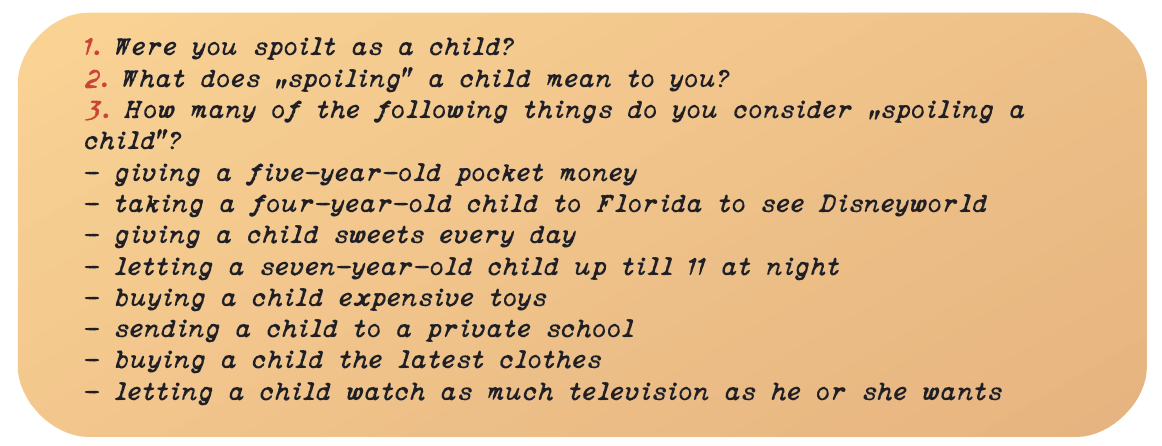
What other things do you consider spoil children?
2. Read the following article, then answer the questions which follow:
This is what happens to spoiled kids when they grow up
Spoiled children are on the rise in modern society, and it is having harmful effects on their attitudes as adults. Parents worry a lot about spoiling children by giving them what they need or by paying attention to them, or by providing them with certain privileges. Parents who feed their baby on demand worry that their child will grow up being a demanding person. Parents who let their child crawl into their bed worry they the child will never get out. Parents fear that if they change their mind, their child will walk all over them. Parents fear if they negotiate and request cooperation rather than obedience, their child will be disrespectful. So many of these worries are not grounded on anything but old wives’ tales, myths and stories – many of which originated generations ago.
Needy and Spoiled Children
All young children are needy. The goal of nurturing parenting is to promote growth and autonomy by helping children get their needs met. Children who don’t live in homes where basic needs are met face serious consequences to their development. Needy children generally feel insecure and unsure of their own abilities to get some of their needs met. Therefore, they cling to their parents or other adults, believing that only by staying close can they be assured their needs will get met.
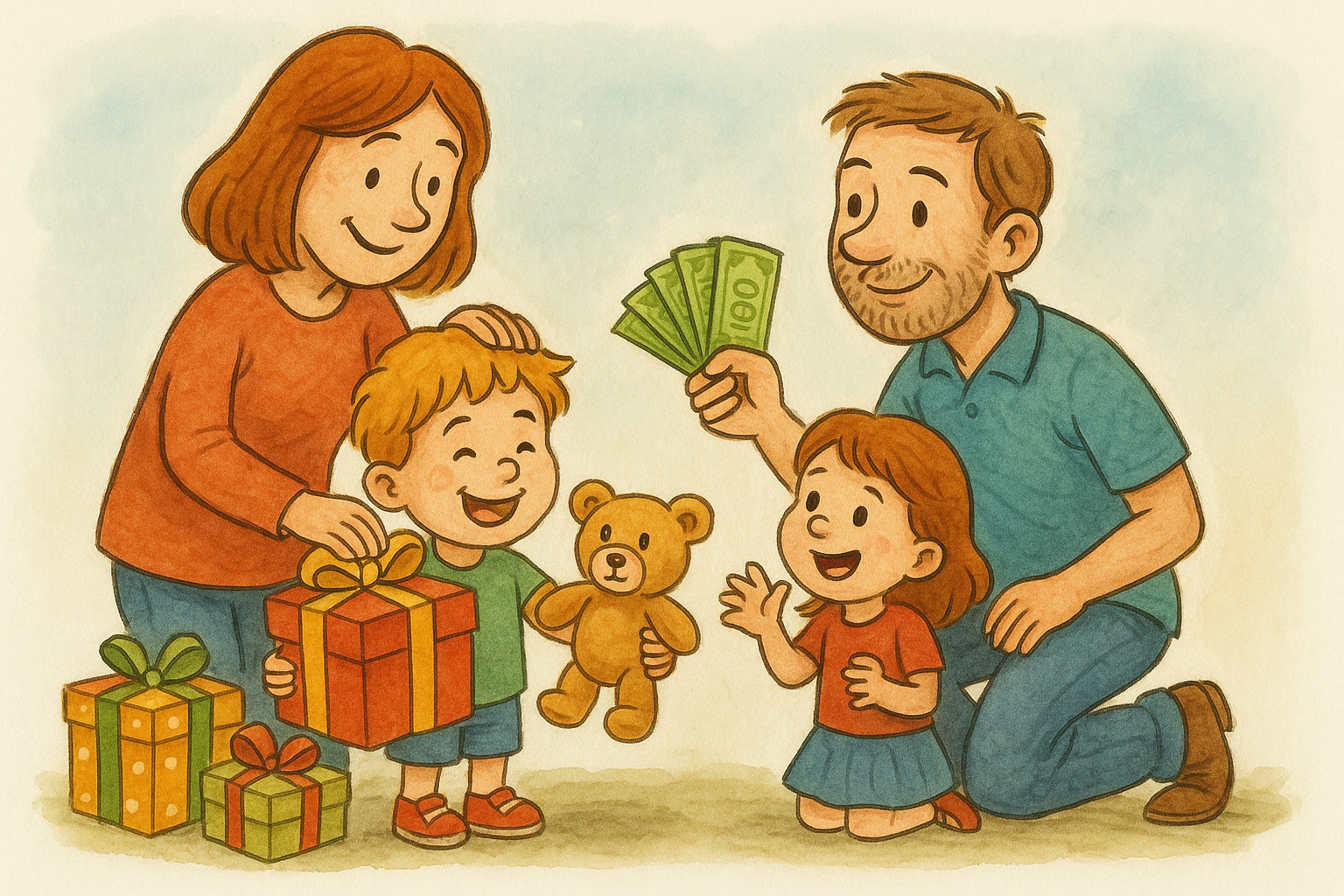
Excessive neediness in children develops in one of two ways:
- Needy children generally have had everything done for them by their parents, and therefore have not been encouraged to do things for themselves. In a sense, they have been treated as infants or ‘infantalized’, that is, not allowed to grow in independence and autonomy.
- Needy children can also be a product of a home where needs don’t get met as a result of too many children in the family, children spaced too closely in age, single parenting, special needs that require additional attention, non-empathic parents, or parents who are as needy as their young children.
Generally, spoiled children don’t trust that their needs will be met, develop an infantile personality, whine, hoard their belongings, have difficulty sharing, and generally make life miserable for everyone around. Children displaying such ‘spoiled behaviours’ don’t have positive feelings of self-worth, therefore they have difficulty understanding how their behaviour makes lives of others miserable.
How do children become spoiled?
Spoiling children is not an easy task. It takes a lot of time, effort, and attentiveness on the part of a parent to spoil a child. Spoiling a child requires that parents perform the following behaviours: • Do everything for a child so he does nothing for himself. • Anticipate a child’s request so she never has to ask for anything. • Spend all your waking hours with your child. • Prohibit any type of short separation from your child, even having a babysitter. • Only pick up a child when he cries. • Be inconsistent in the limits and rules you lay down so a child never knows what to expect.
Questions to discuss:
- To what extent do you agree with the author of this article?
- Does spending all waking hours with a child actually lead to spoiling him/her?
- Why do modern parents tend to be over-protective with their children?
- What are serious consequences of such a tendency for the future society?
3. Look at the following words and expressions, find them in the text and together with your partner discuss their meanings. Then check with the teacher.

4. Work in pairs. Which of the following collocations to do with children have a negative connotation?
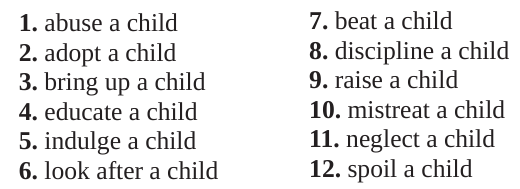
Which of the above collocations describe these situations?
a. She’s always giving in to that boy.
b. He taught me everything I know.
c. Where did you get those bruises?
d. They never say no.
e. They couldn’t have any kids of their own, so…..
f. She forgot to pick her up from school again.
g. That’s it! Go straight to your room!
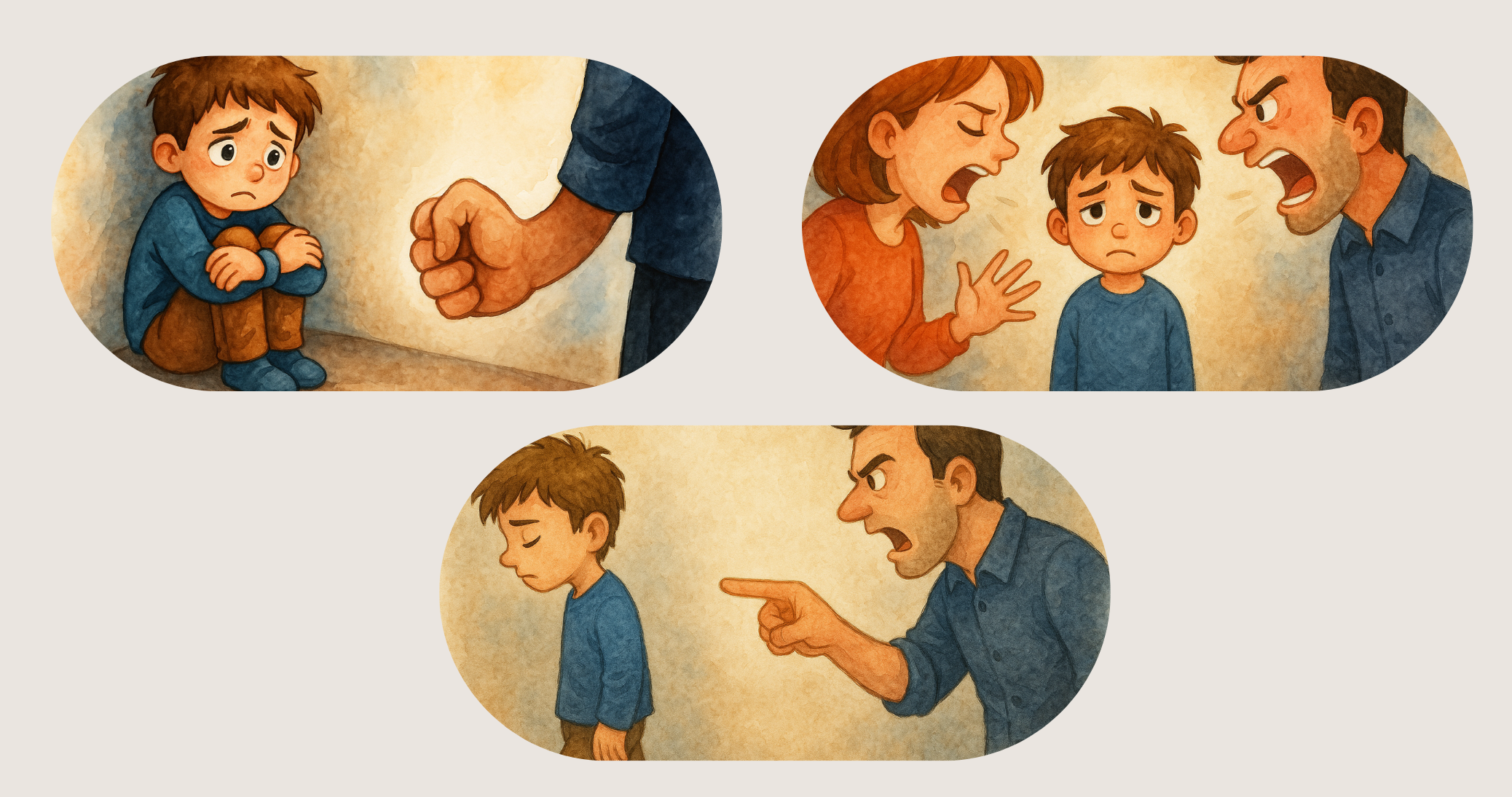
5. Work in pairs. Answer the questions. Then discuss the answers with the whole class.
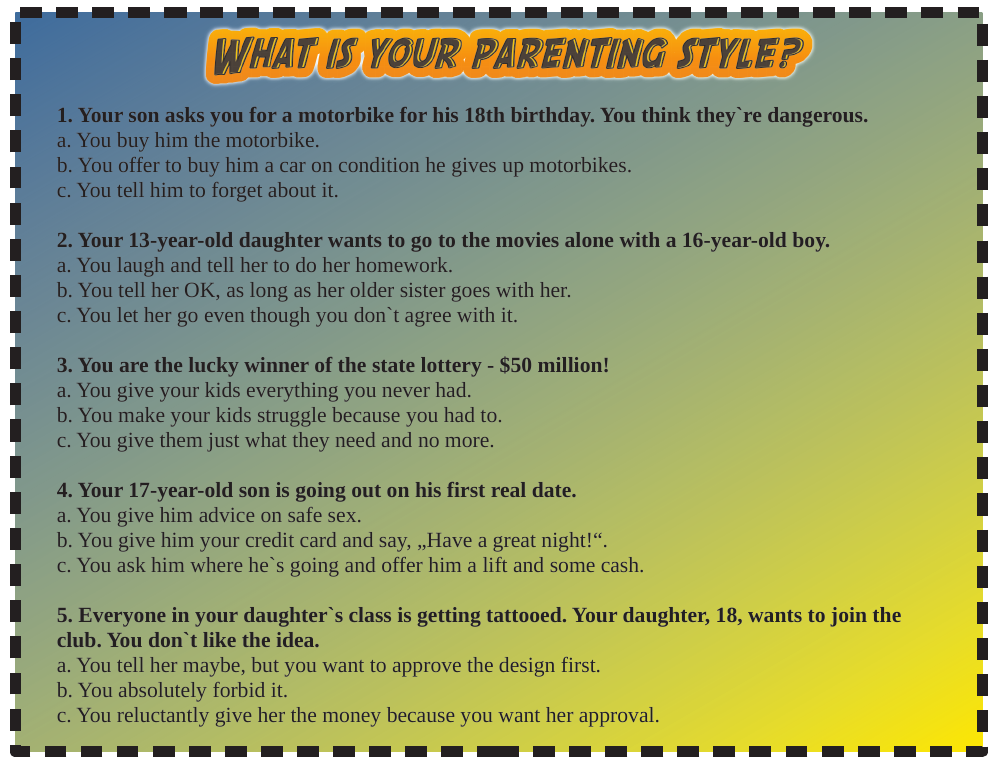
6. Look at the following example of addition. If your child answers like this, what will you do? What will you tell the kid?

You are going to watch a short film comedy, Alternative Math, produced by Ideaman Studios. The film is a hilarious exaggeration of a teacher who is dragged through the mud for simply doing her job. But under the humor, the 9-minute flick shows the dark reality: the lack of respect and trust teachers are given these days. The video shows how modern day society, media, parenting, and school administration have the ability to flip the script on an innocent classroom situation. With the presence of helicopter parents, unjust lawsuits, broken school systems, and scrutinizing media, teachers are left in fear of doing their jobs.
Discuss the film in open class!
7. Write a letter to a friend telling him/her about this situation and expressing your personal opinion.
Use some expressions from the list below:
It’s been ages since we last spoke.
Sorry for not being in touch for so long.
How’s life treating you?
How are things?
How have you been?
What are you up to these days?
Guess what…..
Well, that’s all for now.
I’d better get back to work now.
Hope to hear from you soon.
Can’t wait to…..
Looking forward to,….
All the best
Lots of love
Take care
Homework
1. Match the words and expressions below with the corresponding pictures.
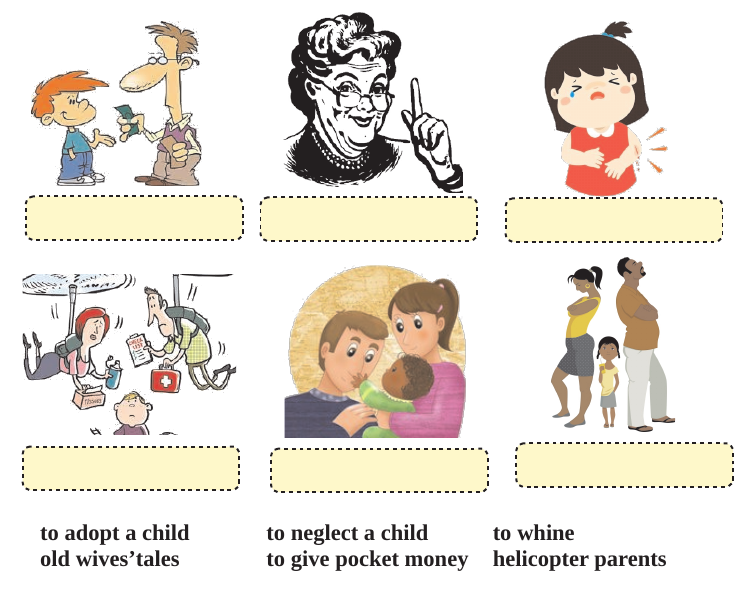
2. Fill in the gaps with the vocabulary from the box.

-
The more you spoil your children, the more ..…..……....…..…….. they are becoming day by day.
-
Buying kids whatever they want will obligatory have ...…..…....…....…….. on their behaviour in the future.
-
Many years ago children were completely different. They weren’t given any ……………………….. and had to deal with the fact that parents could easily say ‘no’.
-
There is a tendency in such big cities like New York and Moscow that children start ..…………………….. their parents. This is a completely spoilt generation!
-
Mrs Green demanded complete ………………………….. from her pupils in the classroom, but they never obeyed her.
-
Some facts and advice about bringing up children are …………………………. on ………………………. .
-
When spoilt kids’ ……………… are not met right at the moment they wanted, they start driving their parents crazy.
-
You should understand that if you are a …………………………., you will have to face serious .…………………………. in the future.
-
Stop …………………….! I’m not going to do every single thing you want!
-
A lot of teachers in public schools are …………………….. through the mud when dealing with crazy over-protective parents.
-
Contemporary children are dreadfully …………………………. .
3. Make up your own sentences with the following words and expressions.

Vocabulary from this lesson
to spoil kids – избаловывать детей
spoilt child – избалованный ребенок
to grow up – расти
on the rise – на подъеме
to have harmful effects on smth/smb – оказывать вредное воздействие на
to pay attention to – обращать внимание на
to feed a baby on demand – кормить малыша по требованию
demanding – требовательный
to crawl – ползать
to change one’s mind – передумать
to walk over smb – помыкать, третировать кого-либо, не считаться с кем-либо, вытирать ноги об
to request – просить
obedience – послушание
disrespectful – неуважительный
to be grounded on – основываться на
old wives’ tales – бабушкины сказки, старые поверья
to originate - происходить, возникать из/в/с и т. д.
to nurture - воспитывать, обучать
to meet smb’s needs – удовлетворять потребности
insecure - неуверенный в себе
to cling to smb - не оставлять, цепляться за что-либо
excessive - излишний, чрезмерный
infant - младенец
non-empathic – не сопереживающий, не сочувствующий
infantile - инфантильный
to whine - ныть, жаловаться
to hoard - накапливать, тайно хранить
self-worth – самооценка, самоуважение
waking hours – часы бодрствования
inconsistent - непоследовательный, противоречивый
to lay down rules – устанавливать правила
to what extent – в какой степени
over-protective – чрезмерно опекающий
consequences – последствия
privilege – привилегия
to abuse – скорблять; злоупотреблять
to adopt a child – усыновить ребенка
to bring up a child – воспитывать ребенка
to indulge - позволять себе, предаваться удовольствиям
to neglect - не заботиться, пренебрегать
to mistreat - плохо, жестоко обращаться
to give in to smb - поддаваться, уступать в чем-то кому-то
reluctantly - делающий что-либо неохотно
approval – одобрение
hilarious - уморительный
exaggeration – преувеличение
to give advice on smth – давать совет насчет
to be dragged through the mud – быть протащенным по грязи (может использоваться в метафорическом смысле)
helicopter parents – родители, чрезмерно опекающие своих детей
unjust lawsuits - несправедливые судебные процессы
to scrutinize - тщательно проверять
obligatory – обязательно
contemprorary – современный
